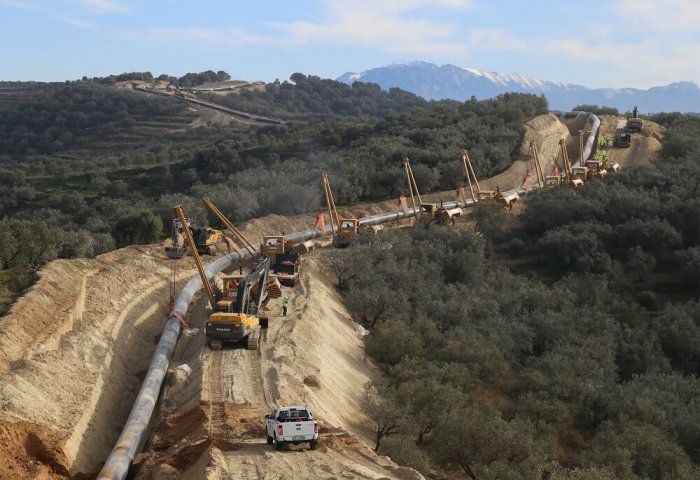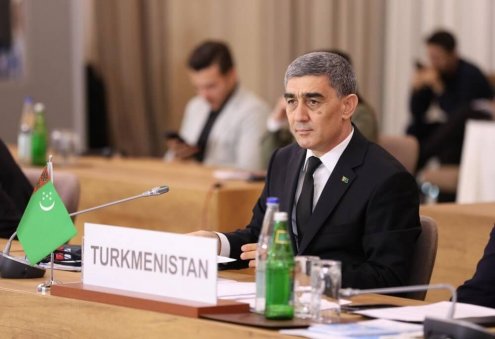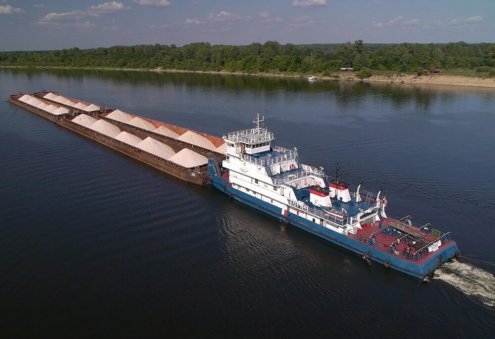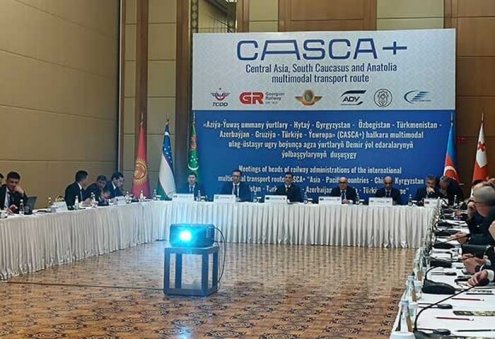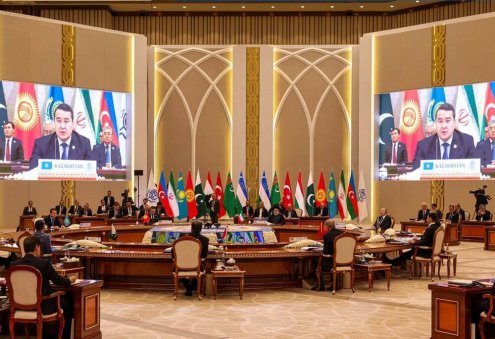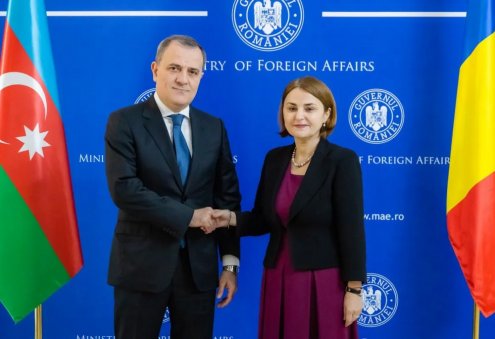On the final day of 2020, the first commercial gas from Azerbaijan to the European market passed through the Trans-Adriatic Gas Pipeline (TAP), the last leg of the Southern Gas Corridor (SGC), AP news agency reported on Saturday citing Azerbaijan's national oil company SOCAR.
The TAP consortium, consisting of companies such as SOCAR, British BP and Italian Snam, has invested around $5 billion in the 878-km pipeline. Japanese, South Korean and Chinese banks also participated in the 3.9 billion euro ($4.8 billion) financing package, along with European banks. TAP enters Europe from the Greece-Turkey border and ends up in southern Italy.
It is a part of the Southern Gas Corridor, which includes three separate pipeline projects in Azerbaijan, Georgia, Turkey, Greece, Albania and Italy. In all, the 3,500 kilometers of pipeline have cost around $40 billion, including the development of the Shah Deniz gas field in the Caspian Sea.
Nikkei Asia magazine in a news report last Wednesday noted that the recently completed gas pipeline project raises hopes for energy-rich Central Asian states like Turkmenistan, Kazakhstan and Uzbekistan to help feed European energy demand.
Although initial annual capacity is limited to 10 billion cubic meters, the pipeline is designed with the potential to eventually double throughput.
Speaking to Nikkei Asia, SOCAR Vice President Elshad Nassirov said the Southern Gas Corridor has excess capacity, which can be significantly enlarged by adding new compressor stations.
Nassirov added that, in order to tap the full potential of the new gas corridor, he would like participation from other regions, such as countries in Central Asia and the Eastern Mediterranean.
"As all five Caspian littoral states finally signed the convention of legal status of the Caspian Sea in 2018, there are no obstacles left to build new pipelines in the Caspian Sea, connecting their gas to this new corridor," Nassirov said, adding that with the convention, an independent environmental assessment report would suffice to start new pipeline projects in the sea.
"Littoral states like Turkmenistan, Kazakhstan and even [non-littoral] Uzbekistan were waiting for the first link to the markets. Hence, the volume of gas from the region will increase substantially in years to come," Nassirov said, expressing hope for additional gas arrivals to the new route.
"Turkmenistan is only 300 km from Azerbaijan," Nassirov noted.
The second phase of market research to further expand TAP and increase the pipeline's capacity to 20 billion cubic meters will begin in the summer of 2021.

